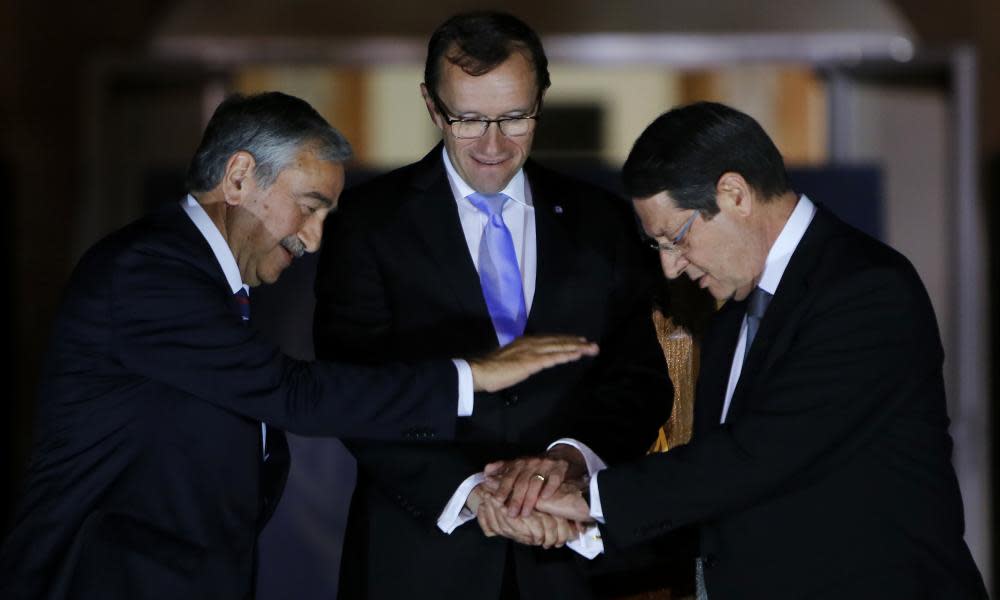Once-in-a-generation hopes of Cyprus reunification appear to be dashed

The best hope yet of reuniting war-partitioned Cyprus has been dashed after reconciliation attempts were brought to an abrupt halt following two years of intense negotiations.
The optimism engendered by talks seen as a once-in-a-generation opportunity to unite the Mediterranean island ended when the United Nations special envoy, Espen Barth Eide, announced that he was terminating negotiation efforts.
“Without a prospect for common ground, there is no basis for continuing this shuttle diplomacy,” the Norwegian former foreign minister said in a short statement.
Eide now enters the long list of diplomats who, for the best part of 50 years, have attempted to solve one of the world’s most intractable diplomatic disputes.
Split between the majority population of Greeks in the south and Turks in the north, Cyprus has been divided since 1974 when Ankara ordered troops to invade the island in response to an Athens-organised coup to unite it with Greece.
In Nicos Anastasiades and Mustafa Akinci – the respective leaders of the island’s Greek and Turkish communities – the two sides had found men who were not only moderate and born in the same town – Limassol – but willing to make the sort of concessions necessary to find a solution.
Both had got to the point of poring over maps outlining territorial adjustments in a envisaged bi-zonal, bi-communal federation. In January, the first international conference on Cyprus was held at the UN headquarters in Geneva with representatives from Greece, Turkey and Britain – the island’s three guarantor powers.
Although widely viewed as a breakthrough, the summit ultimately ended in impasse following disagreement over security and power-sharing arrangements.
It had been hoped that a second international peace conference would be convened in Geneva in the coming weeks to finalise the details of the differences still outstanding. But, within hours of Eide’s announcement, the two leaders were already exchanging angry words.
Anastasiades, who heads the island’s internationally recognised south, said: “If the Turkish Cypriot side, and Turkey in particular, want, as they say, to resolve the Cyprus problem, I am ready to attend a conference on Cyprus in Geneva at any time.”
Ankara has an estimated 40,000 troops stationed in the self-styled Turkish Republic of Northern Cyprus, which proclaimed independence in 1981. Under pressure from hardline nationalists, the Greek Cypriot president wants security issues – starting with a reduction in the number of mainland Turkish military personnel kept in the north – to be addressed at an international summit.
Akinci hit back on Friday saying he could not accept his interlocutor’s “preconditions.”
The UN, which also maintains a peacekeeping force on the island, was at pains to put on a brave face insisting there was still hope. The negotiations, though mediated by Eide, had been leader-led with both sides saying there would be no agreement until everything was agreed.
“The talks have not collapsed,” a spokesman, Aleem Siddique, told the Associated Press. “The process remains leader-led and we now have to hear from the leaders how they see a way forward.”
But presidential elections in early 2018 in the south and the government’s bid to explore for offshore oil and gas – a drive that is due to be launched on 13 July and which has been quick to draw the ire of Turkey – have both complicated the talks process.
Moscow is also believed to have acted behind the scenes to thwart a solution. If reunited, Cyprus would reconcile feuding Nato partners at a time of global uncertainty and mounting tensions in the region.

 Yahoo News
Yahoo News 
